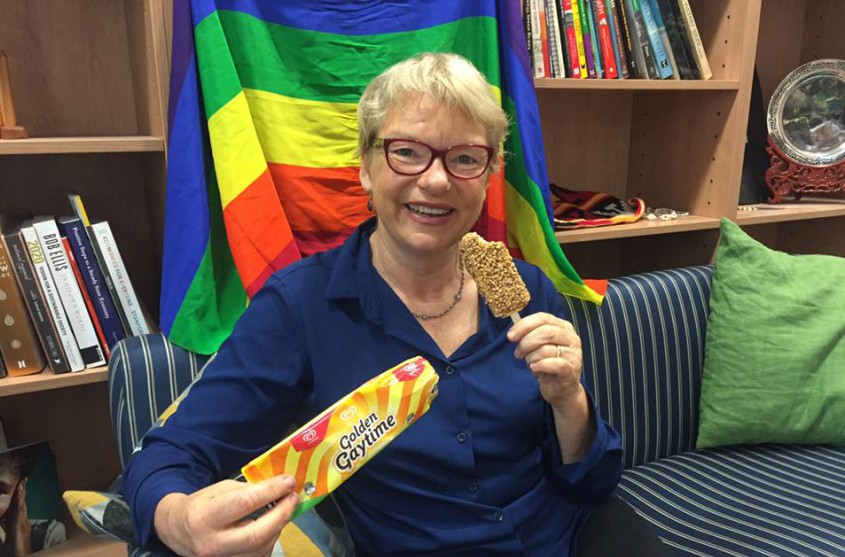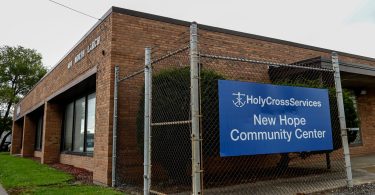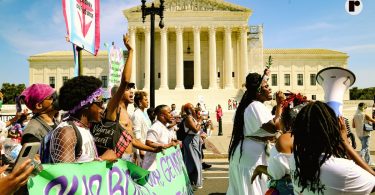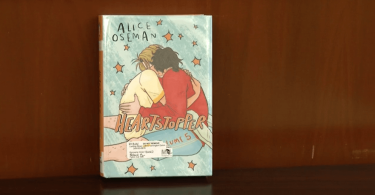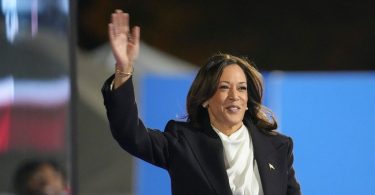Photo: Facebook via Janet Rice
Australian Senator Janet Rice is the Australian Greens LGBTIQ spokesperson. | Photo: Facebook via Janet Rice
A ‘fun and cheeky’ piece of Australia’s marriage equality debate is now forever memorialized in history.
Greens Senator Janet Rice made headlines last year when she knitted a rainbow scarf in the Senate.
In 2017, Australians overwhelmingly voted in favor of same-sex marriage during the country’s postal survey on the issue. But in the months leading up to the survey, debate raged in parliament and across all walks of life.
Immigration Minister Peter Dutton famously told influential business leaders to ‘stick to their knitting’ rather than weigh in on the debate. His comments went viral and Senator Rice decided to have some fun with it.
‘It was a fun and cheeky way to bring some colour and laughter to a debate that was largely negative and exhausting for a lot of people,’ she told Gay Star News.
‘I decided to knit the rainbow scarf in the senate because I wanted to pivot away from Peter Dutton’s negative comments… and not speaking out about equality.’
May the record reflect that I absolutely love @janet_rice. pic.twitter.com/nQnx6WU4Nu
— Jordan Janssen (@JordanCJanssen) March 20, 2017
Rice has now donated that scarf to the Australian Gay and Lesbian Archives (ALGA). ALGA the only community group in Australia that actively collects and preserves LGBTIQ material. Its collection is the largest and most significant collection of Australian LGBTIQ life.
Rice donated the scarf to ALGA to preserve the ‘significant moment’ in Australia’s history.
‘The campaign to achieve marriage equality in Australia is a significant moment in LGBTIQ history, and it’s important to preserve that history for future generations,’ she said.
‘I’m very happy that the scarf and the cheeky moment it represents will be preserved and remembered.’
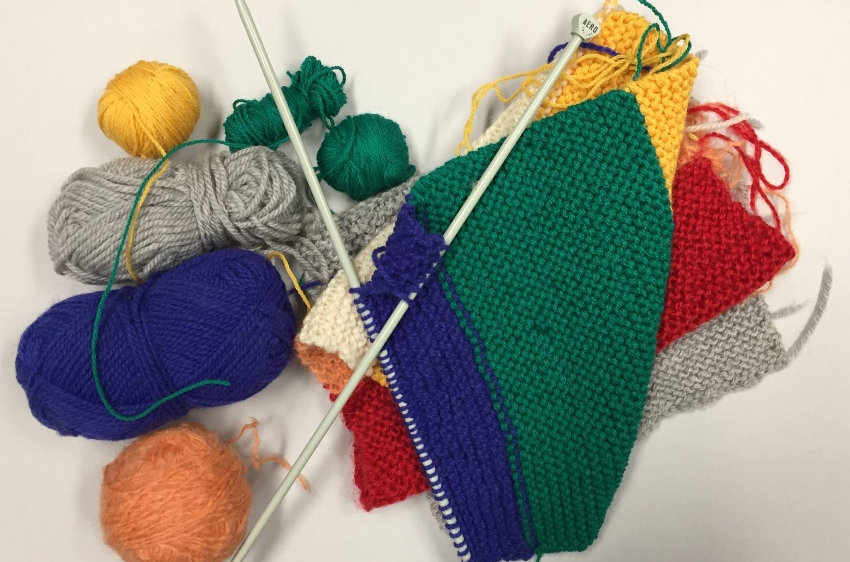
The infamous scarf knitted by Senator Janet Rice. | Photo: Facebook/Australian Lesbian and Gay Archives
A watershed moment
Australia finally legalized same-sex marriage more than six months ago, but the impact of the postal survey is still keenly felt.
‘The postal survey should never have happened. Future generations will look back on that time and be shocked that LGBTIQ communities were put through such a harmful and unnecessary ordeal,’ Rice said.
Rice remembered the campaign ‘as a time of incredible resilience’.
‘I’ll never forget the passion and dedication of everyone who stepped up to campaign for the ‘yes’ vote,’ she said.
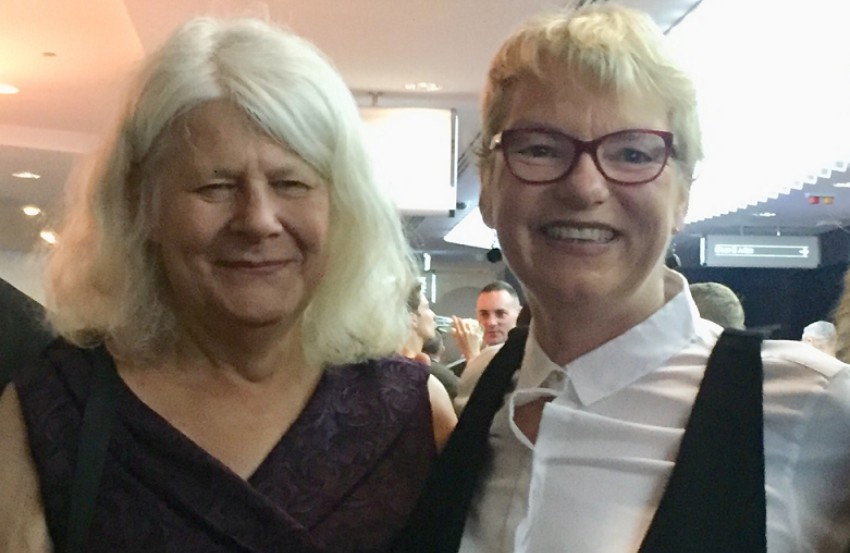
Penny Whetton with her wife Australian Greens Senator Janet Rice. | Photo: HRLC
But for ALGA it was also a critical time to keep up with the volumes of content created. Its small team worked tirelessly to ensure its historical preservation. It acquired many significant pieces from the postal survey. One of the key pieces included a copy of the amended Marriage Equality Bill which legalized same-sex marriage.
‘The passing of marriage equality law reform was a watershed moment for Australia, placing LGBTIQ rights firmly on the national agenda in a way that hasn’t occurred previously; and bringing to a close more than a decade of divisive campaigning on the issue,’ ALGA’s Nick Henderson told Gay Star News.
Preserving marriage equality history
ALGA has collected materials concerning the marriage equality debate since 2004. In that year then Prime Minister John Howard changed the Marriage Act to say ‘marriage means the union of a man and a woman to the exclusion of all others’. That change sparked the start of the fight for marriage equality in Australia.
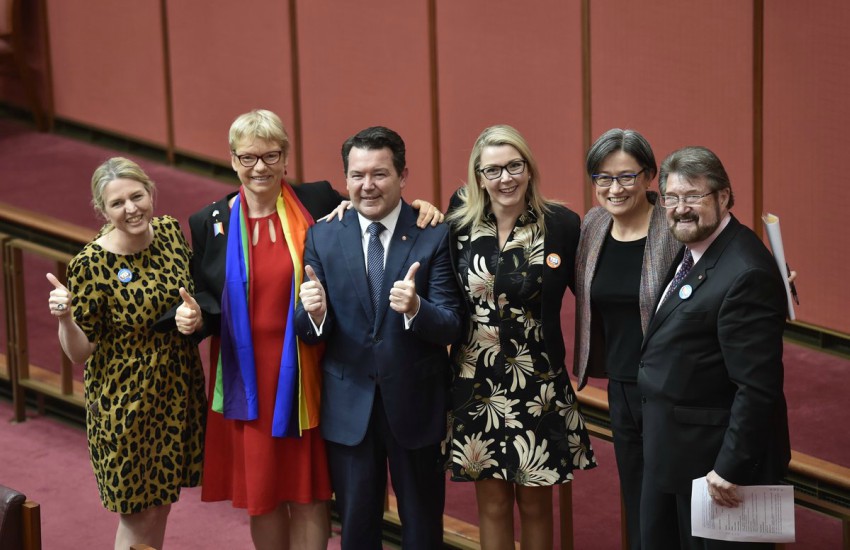
Australian cross-party Senators who co-sponsored a Private Member’s Bill to legalize same-sex marriage. | Photo: Twitter @janet_rice
But ALGA even has marriage equality materials that date back as far 1847. A British Government convicts report refers to ‘up to 150 couples male couples’ which it described as married.
ALGA will make the marriage equality materials available to researchers and exhibit them to the public in the future.
‘The campaigning around the plebiscite and survey produced an outpouring of ephemeral material unlike previous campaigns, and collecting the breadth of this material produced across Australia nationally was challenging for our small volunteer-run community archive,’ Henderson said.

